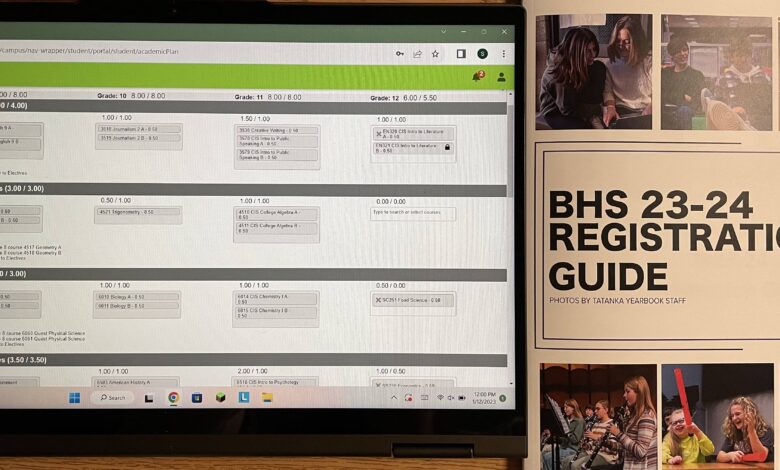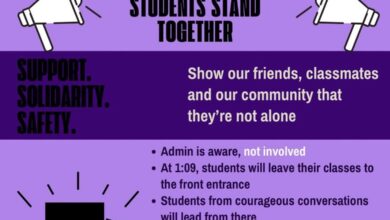The transition to trimesters is causing concern among students. What can be done to prevent issues?

It’s becoming common knowledge that BHS will be switching to a new schedule in the upcoming 2023-24 school year. While this has caused a lot of worry among students about fulfilling credit requirements and has led to some rumors and speculation, the school administration believes that it will ultimately be a better option than continuing the current semester schedule.
The Hoofprint reached out to counselor Mark Jones for more insight on the big decision.
What will the switch to trimesters look like?
In the current block schedule, there are four blocks a day throughout four quarters, which means that there are 16 total slots to place classes in. The most common class lengths are one and two quarters, and very few run for three or four quarters.
In the trimester schedule, there will be five blocks a day throughout three trimesters, which means that there are only 15 total slots to place classes in, one less than is currently available. The most common class lengths will likely still be one and two terms, but instead of having two additional possibilities, there’s only one, being three terms, or a full year.
Class curriculums are currently being adjusted and developed to lengthen or condense the teaching schedule in order to fit into the new class and block lengths.
How will scheduling change with the new trimester schedule?
When students register for next year’s classes, all of the choices are put into Campus, where an algorithm mashes the entire system’s selections together to create the best fitting schedule for each student, prioritizing the classes they selected. Because of class conflicts and required classes, there tends to be quite a few “holes” or unscheduled blocks in the resulting official schedules. After this initial scheduling, counselors go through and put in your alternates to fill these gaps, but even then there are many holes.
Counselors try to fill as many holes as possible before the year starts, but some have to be filled at the last minute, just before the term with a hole begins. This is done by contacting a counselor once the hole has been identified and working to find an acceptable replacement class that will fill in the opening.
Registration is important for more than just making student schedules. The classes students register for determine how many times that class will be taught throughout the year, which teachers are needed to teach that class, and can determine if more staff needs to be hired to fill the demand for classes.
“You need to choose [which classes] are the most important to you,” Jones said. “Your choices have a role [in everything].”
After the classes are determined, there are limited spots available in each one. The goal is to have every spot filled with the people who initially registered for that class. However, some people choose to drop a class between the schedule being finalized and the class taking place. This can lead to classes that were expected to be full to have quite a few open spots. Because they have fewer required classes left to take, upperclassmen often have more holes in their schedules, but they also have more opportunities to fill them, with senior study and peer coaching opportunities.
The school expects that the trimester schedule will offer more flexibility with scheduling because noncurrent curriculum classes that do not build off of the previous term will be able to be split up. This would mean that in addition to T1-T2 or T2-T3 (consecutive terms), classes could run during T1 and T3 (skipping trimester 2 and resuming during trimester 3). The treatment of multiple term-long classes as separate halves allows for more possible arrangements of one and two term classes.
What can students do to avoid scheduling issues?
Above all, Jones recommended reaching out to your counselor as soon as possible to solve scheduling issues. Check your schedules in advance of the new semester and make sure there aren’t any holes to fill, and if there are, send your counselor an email.
“Getting [to a counselor] early will lead to more choices [for everyone] because less classes will be full,” Jones said. “[Seniors taking] senior study can lead to openings in classes and can really give flexibility to underclassmen.”
The biggest roadblock to students getting classes that they want is procrastination. Students often don’t check their schedules in time to catch and fill holes, or they’ll neglect to contact their counselors once they find out.
“Terms one and three have a lot of foot traffic,” Jones said. “We have walk-in days the first few days after the schedule is released. I probably see a hundred or so kids those days. Sometimes we call kids with empties [to student services]. They won’t schedule a meeting with us but then they won’t get the classes they want. Procrastination.”





